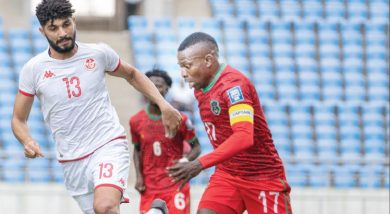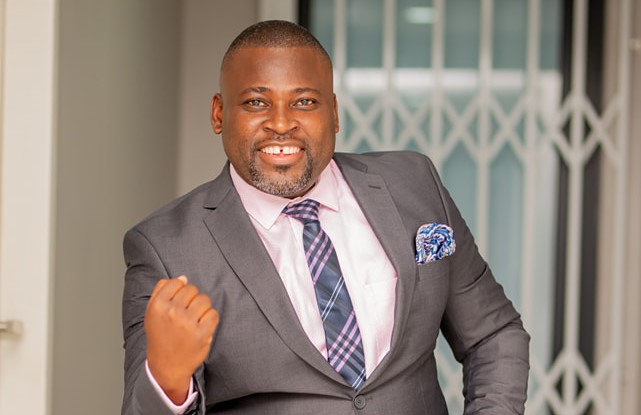Deteriorating Malawi junior football worries Malunga

Forgotten former Flames and Mighty Wanderers midfield maestro Kennedy Malunga has broken his silence spanning two decades by bemoaning the abandonment of sound development programmes that turned into a successful talent breeding ground.
Malunga, 44, delights in the glory of being one of the only two Malawian players to have been short-listed for the CAF Footballer of the Year Award in 1987. The first one was the late Clifton Msiya in 1984. Malunga was the first Malawian to play in a European top league, when he signed for Belgian crack outfit Cercle Brugge in 1987 before moving to Kortrijik. He played a vital role when the Flames qualified for the All Africa Games in 1988 where they finished third.
Malunga said it is imperative for authorities such as FAM and ministries of Sports and Education to rejuvenate the junior development programmes that not only helped produce sublime talent but also led the Flames to scale lofty heights.
Speaking on Tuesday for the first time in many years from Johannesburg, South Africa, where he has been based for over 20 years, Malunga said the abandonment of the programmes coupled with local clubs’ lack of international exposure are to blame for the failure by local players to attract interest of top European clubs.
“Believe you me, the talent is still there, but the crucial aspect is about nurturing and developing it. If we still had a proper set-up in terms of development structures, surely, we should have been able to produce other world-class players such as Ernest Mtawali, rather than dwell on history.
“Although I have been here for some time now, I follow events back home, in particular football, with keen interest and what comes out clearly is that the sound development system that was there during our time, has gone down. The other thing is that unlike in the past, local teams no longer take part in international tournaments,” said Malunga who was affectionately called ‘Senator’ by his admirers.
He added: “We would start from the youth teams and we were not promoted until the technical panel was satisfied that we were ready for the big stage. Even at school, we used to have the Mayor’s Trophy and the Consolidated Textiles Tournament at primary level. At secondary or high school level, there was the MBS [Malawi Book Service] Trophy.
“Similar tournaments could still be there, but the development system could be faulty. There is need to put in place proper structures, even a baby has to learn to crawl, stand and then walk,” he said.
Malunga also had stints with South African clubs such as Mamelodi Sundowns alongside compatriots—his late brother Holman, Mtawali, the late Lovemore Chafunya and Cedric Nankhumwa.
He had simple advice for up-and-coming players who dream of playing football in Europe: “It is never easy. You cannot sit on your laurels. You have to work hard all the time to maintain consistency. Self-discipline and patience are also important.”
Mtawali, who also played in top overseas leagues, in particular at Newell’s Old Boys and Toulouse in Argentina and France respectively, echoed Malunga’s observation, adding that while FAM is trying its best to reorganise the structures, there is still a lot to be done.
“There’s still that tendency to rush the up-and-coming players into the thick of things and that is why you find a player struggling with basics such as ball control and movement at senior national team.
“These things have to start at a tender age such as Under-12 and Under-14, then they progress to Under-17 and Under-20. That is the kind of system big-name players such as Kinnah Phiri, Lawrence Waya, the Malunga brothers, Young Chimodzi, Jack Chamangwana and Msiya went through. The list is endless,” said Mtawali, also considered as one of the best European exports apart from Malunga and Esau Kanyenda.
“I think we lost the plot when [Manfred] Hoener left because he produced the likes of Peter Mponda, Esau Kanyenda, [late] Chikondi Banda, Gift Zakazaka and Peter Mgangira. Thereafter, there was a gap. It is not surprising that Mponda passed trials at Auxerre in France, Kanyenda played at top level in Russia and Mgangira also had a stint in Denmark,” he said.
He added that it is also crucial that those drilling players at youth level should be specialised in that area.
Mtawali added that the other crucial aspects for players to land deals with top overseas clubs include hard work, discipline and perseverance.
On his part, Kanyenda said: “The standard of play in the national league also matters a lot because agents and overseas teams cannot be interested to scout for players in a country where teams do not take part in continental tournaments and is not ranked.”
Players agent Felix Ngamanya-Sapao agreed with the two former stars’ sentiments on the abandonment of sound development structures.
Currently, while neighbouring countries such as Zambia, Zimbabwe and Mozambique have many players turning out for top leagues overseas, Europe in particular, Malawi has only Tawonga Chimodzi playing in the Greek second-tier league.
So far, Malawi has only produced six players who played in European premier leagues, these are Malunga (Belgium), Mtawali (France), John Maduka (Norway), Esau Kanyenda (Russia), Joseph Kamwendo (Denmark) and Russell Mwafulirwa (Sweden).
Mtawali also signed for Forest alongside Keane in the 1980s, when the English top league was still called the first division, but his contract was terminated after misunderstandings between his South American agents and South African club Mamelodi Sundowns over his ownership.
Similarly, Peter Mponda also passed trials at Auxerre in France, but the deal was botched up following misunderstandings between local agents.
Others such as Holman (Belgium), Mtawali (Italy), Dan Chitsulo (Germany); Clement Kafwafwa, Mgangira and Heston Munthali (Denmark); Robin Ngalande (Spain)], Chimodzi (Greece) and Chikondi Kadzombe (England) played in the lower leagues.





